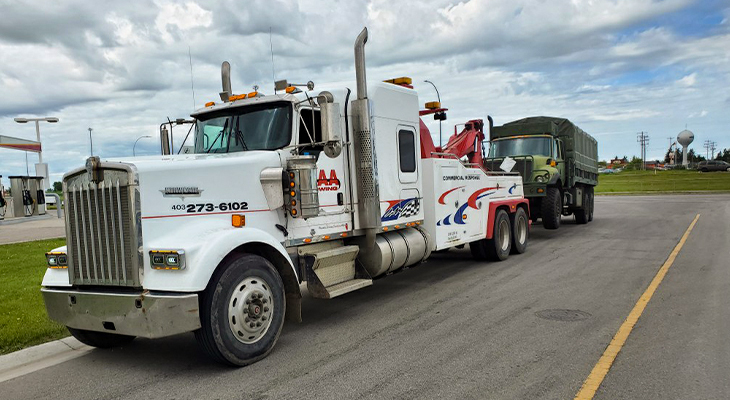The Hidden Dangers Of Heavy-Duty Towing That You Need To Know
April 17, 2023

Heavy-duty towing refers to the process of transporting large and heavy loads using specialized equipment such as heavy-duty trucks, trailers, and hitches. While heavy-duty towing is often necessary for commercial purposes, it poses potential dangers that drivers need to be aware of.
Understanding the risks associated with heavy-duty towing and calling an experienced towing company to prevent accidents and ensure the safety of drivers, passengers, and other road users is essential.
This blog post will explore the hidden dangers of heavy-duty towing and provide tips on how to avoid accidents caused by overloading, poor weather and road conditions, equipment failure, and other risks. By the end of this post, you’ll have a better understanding of the importance of safety measures when towing heavy loads.
Overloading occurs when a vehicle carries a load exceeding its weight limit. This causes serious risks on the road, such as decreased braking ability, instability, and tire blowouts. Overloading can also lead to equipment failure and vehicle suspension system damage.
To avoid overloading, it’s essential to know the weight limits of your vehicle and ensure that you’re staying within them. Proper weight distribution is also crucial for safe heavy-duty towing. This means that the weight of the load should be evenly distributed over the trailer and vehicle. Improper weight distribution can cause the trailer to sway, increasing the risk of an accident.
Here are some tips on how to properly distribute weight and avoid overloading:
Poor weather and road conditions significantly increase the risks of heavy-duty towing. It’s important to check weather and road conditions before towing to ensure safe transport.
Here are some tips on how to adjust towing practices during different weather conditions:
Reduce speed and increase your following distance. Wet and slippery roads can cause the trailer to lose traction, so it’s important to drive cautiously and avoid sudden movements.
Strong winds will affect the trailer’s stability, causing it to sway or jackknife. Reduce your speed and avoid sudden movements in windy conditions.
High temperatures can cause your tires to overheat and increase the risk of blowouts. Check your tire pressure before towing and avoid overloading the trailer in hot weather.
Also Read: How To Choose The Best Equipment Hauling Company
Equipment failure is a serious risk during heavy-duty towing. Common equipment failures include brake failure, tire blowouts, and hitch failure. These failures lead to accidents and injuries on the road.
To prevent equipment failure, it’s essential to maintain and inspect all towing equipment properly. Here are some tips provided by specialized heavy-duty towing services on how to maintain equipment and prevent failure:
Taking the time to inspect and maintain your equipment before every trip helps prevent accidents caused by equipment failure.
When towing a large load, there can be blind spots that limit your visibility. This means that you may not be able to see other vehicles on the road as easily as you would without the load. It’s important to be extra cautious when changing lanes or merging onto highways to avoid accidents with other vehicles.
Always use your mirrors and turn signals, and consider installing additional safety features like blind spot mirrors or cameras to improve your visibility. Avoid sudden lane changes or erratic driving, as this startles other drivers and increases the risk of accidents. By being aware of your blind spots and driving defensively, you can help keep yourself and others safe on the road while towing a large load.
In the early 80s, AAA Towing started operating as a light-duty towing and recovery service provider to the general public of Calgary, Alberta. Over the years, we have established ourselves as trailblazers providing heavy-duty towing and transportation services for commercial equipment and machinery. Our team of experts and top-of-the-line equipment allow us to fulfill all of your towing and transportation requirements. We are renowned for our speedy response, dependability, and professionalism, making us the preferred choice for all of your towing needs. Learn more about AAA Towing and the services we offer.
If you require affordable and professional heavy-duty towing services, don’t hesitate to contact us today.
We make sure each customer is completely satisfied before we leave the job.